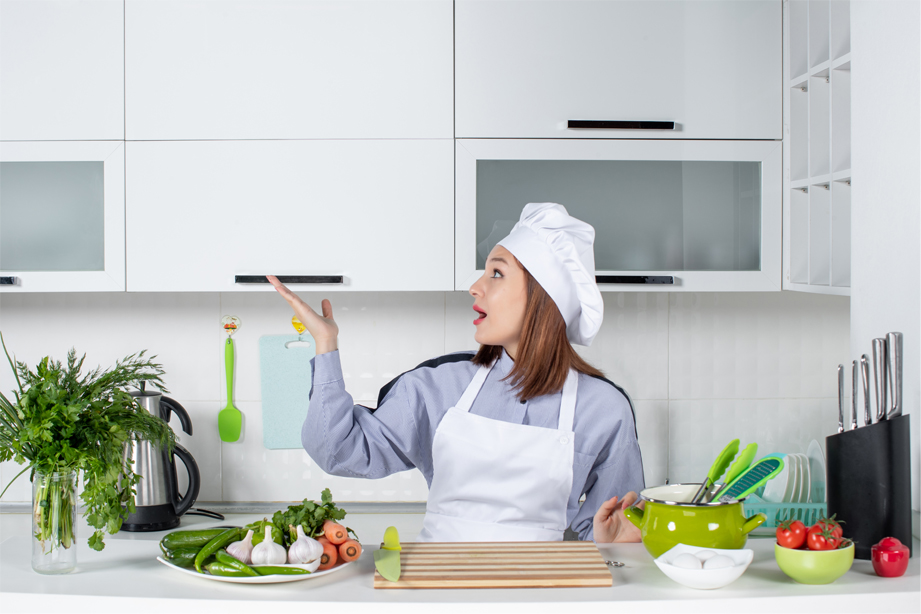By Lexie Grech
www.foodandbeing.com
www.instagram.com/lexiegrech
“Cooking is such a chore! How can it be therapeutic?” I hear you – it’s a fair point. In fact, this is the most common response I get when I mention that one of the coaching approaches I offer revolves around being in the kitchen and using the experience as a metaphor for life. Let’s be honest, it’s easy to view the kitchen as a space of obligation rather than an opportunity, especially after a long day. Even as someone who has always processed life’s ups and downs in the kitchen, I still have days where my main goal is solely to get something on the table as quickly as possible and be done with it.
But what if I told you there’s a way to shift your mindset and transform cooking from a mundane task into something far more fulfilling? When you look beyond the task itself, the kitchen can become a place of creativity, personal expression, and even a source of well-being – not just for you, but for your family, your team, or even your friend group.
Acknowledging the Reality: Why Cooking Feels Like a Chore
I often hear people say, ‘I just don’t have the time,’ ‘I never know what to cook,’ or even, ‘The cleanup is just too much work.’. The survey Food & You 2: Wave 6, published by the Food Standards Agency (UK) in July 2023, found that around 40% of people felt that a lack of time was a primary barrier to cooking meals from scratch. It’s no surprise. With our increasingly busy schedules, cooking can feel like another task on a never-ending to-do list.
One major reason for this is decision fatigue. After a long day of making choices at work or managing household tasks, the simple act of deciding what to cook can feel like too much. Add to that the monotony of preparing the same dishes day after day, and it’s easy to see why the joy of cooking might fade. Truth be told, the last thing we need is the additional pressure that cooking ‘should’ feel therapeutic and that we ‘should’ get a lot more out of it than a meal, and that’s okay. So, let’s settle on one thing, it’s perfectly normal to have days when cooking feels like something to “get through,” rather than something to savour.
The Power of Mindset: Shifting from ‘Doing’ to ‘Creating’
Forget the kitchen for a moment. Think about painting a wall in your home. It’s a task, something you just need to do and finish, and though to some people it may feel therapeutic, for most of us it’s not. Now, imagine you’re asked to paint a mural instead. Suddenly, it’s not just about the outcome; it’s about the process, the creativity, the research, the imagining, the sketching and the ultimate joy of creating.
Cooking can be much the same. On some days, it feels like we’re just ‘doing’, preparing a meal to tick off our to-do list and meet external expectations, which we often internalise over time. But on other days, we have the opportunity to transform it into a chance for ‘creating,’ immersing ourselves in the experience and allowing it to be our canvas for internal expression.
Incorporating intentionality into this process makes a significant difference. One of the wonderful aspects of the kitchen space is that it invites us to play, introducing a sense of freedom and fun.
This mindset shift from the ‘doing’ to the ‘creating’ taps into the power of curiosity and helps us relinquish judgement, much like how children approach new activities. This openness allows us to reap the benefits of our culinary experience in a revolutionary way, transforming not just our meals but our overall relationship with cooking.
The Benefits of ‘Creating’ for Our Brain and Well-Being
Engaging in acts of creation has countless benefits. Whether through crafting, painting, writing, cooking or building, the process provides a channel for self-expression, allowing us to share parts of ourselves that would otherwise remain unseen. This act of making builds confidence, reinforces our sense of identity, and brings a sense of purpose and accomplishment. Through creation, we can remain open to different perspectives, enabling us to grow both emotionally and intellectually.
Christianne E. Strang (2021), in her study “Art Therapy and Neuroscience: Evidence, Limits, and Myths,” highlights the profound connection between creativity and neuroplasticity – the brain’s ability to reorganise itself and form new neural pathways, which is essential for learning and adaptation, particularly in new situations or circumstances. Strang demonstrates that engaging in artistic activities can facilitate this process. This aligns seamlessly with the act of cooking, which is not just about nourishment but also a multifaceted experience that engages planning, sensory exploration, and emotional expression. By immersing ourselves in the culinary process, we stimulate brain regions responsible for cognitive flexibility and emotional regulation, ultimately enhancing our cognitive resilience. This type of engagement can be particularly therapeutic, as it allows us to process emotions and express ourselves in ways that may not be possible through words.
Cooking, in particular, uniquely involves all five senses, making it a powerful way to regulate our nervous system. As health psychologist Dr. Linda Wasmer Andrews explains in The Benefits of Cooking: How Kitchen Time is Good for the Soul, this multi-sensory engagement can reduce cortisol levels, leading to a calming effect that alleviates anxiety. This same process also taps into the brain’s reward system, releasing dopamine and reinforcing feelings of pleasure and accomplishment, which, over time, can harness a helpful mindset.
If this wasn’t already sufficient, braving the challenges of each recipe gradually builds emotional endurance, as we learn to approach setbacks with curiosity and turn them into invaluable reflections. In family or team settings, cooking together amplifies these benefits, creating a shared sense of accomplishment, and trust, and strengthening bonds. Adopting a ‘creation’ mindset in the kitchen transforms each dish into a testament to collaboration, care, and the joy of crafting something meaningful together.
Shifting the Mindset: How to Reframe Cooking in Your Life
Shifting our mindset from simply ‘doing’ to embracing the magic of ‘creating’ in the kitchen involves a few simple yet meaningful steps. Being intentional about our time in the kitchen can transform it into something truly special; dedicating focused time on specific days, rather than setting the expectation that it should be an everyday occurrence, allows us to approach cooking with a sense of purpose. Adding small rituals, such as playing your favourite playlist, inviting loved ones to join, creating special themes or experimenting with new recipes, can invite excitement and inspire curiosity. Introducing the idea and inviting family members, housemates, or team members to shape it together creates a sense of togetherness. By gaining buy-in in advance, everyone feels included and committed, aligning expectations and enhancing the journey for all involved.
Focusing on what we’re creating, rather than just completing a task, helps us savour each step. Simple reframes like ‘This is my time to create and unwind’ can strengthen our intentions and boost confidence from the start. Ultimately, letting go of a fixed outcome and immersing ourselves in the journey frees us from the pressure of perfection, making room for creativity and spontaneity. Each cooking experience, whether it’s attempting a new technique or discovering an unexpected flavour, enriches our culinary journey and creative release. Adopting these approaches, can completely transform cooking into a more holistically fulfilling experience.
In Conclusion: The Kitchen is Your Creative Workshop
There will always be days when cooking is just about getting food on the table, and embracing this reality is essential. When we stop forcing each cooking experience to feel “inspired”, we open space for varied, authentic experiences through a more accepting mindset.
On days when we choose to ‘create,’ consider the kitchen as a personal workshop – a space for exploration, innovation, and meaningful contributions. Here, you’re free to experiment with flavours, textures, and techniques using all five senses. Cooking becomes more than a task; it’s an opportunity to engage in creativity from envisioning and problem-solving to the delight of bringing a concept to the table.
For those who want to explore further, working with a cooking or baking therapist can help unlock the kitchen’s full therapeutic potential. Cooking therapy, similar to other forms of art therapy, offers tailored, guided approaches that draw out personal insights, deepen self-care, and promote self-awareness across various topics and aspects of being, all whilst concocting something delicious in the process. This specialised support enhances opportunities for connection for individuals, families, teams, and friend groups alike.
So here’s to finding and celebrating those pockets of joy in the kitchen, however small, and creating something truly nourishing for ourselves and those around us, in every sense of the word.

